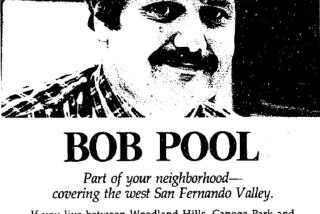1888
This week in 1888, the newly named city of Long Beach was incorporated for the first time. Built on tidelands and sloughs, it seemed destined to make the history books for nothing much more than the pleasantness of its climate and the 8.5-mile extent of its sandy seaside. Then came the discovery in 1921 of oil at Signal Hill, the third big strike in Southern California in less than a year. A gusher of riches, greed and corruption transformed the region and gave Upton Sinclair, who briefly lived in Long Beach (and later ran for governor of California), the canvas for his muckraking 1927 novel “Oil!”:
*
Speculators set themselves up in tents, or did business from automobiles drawn up by the roadside, with canvas signs on them. There was coming and going all day long, and crowds of people gathered to stare up at the derrick, and listen to the monotonous grinding of the heavy drill that went round and round all day—”Ump-um—ump-um—ump-um—ump-um”—varied by the “puff-puff” of the engine. . . .
The inside of the earth seemed to burst out through that hole; a roaring and rushing, as Niagara, and a black column shot up into the air, two hundred feet, two hundred and fifty feet—no one could say for sure—and came thundering down to earth as a mass of thick, black, slimy, slippery fluid. It hurled tools and other heavy objects this way and that, so the men had to run for their lives. It filled the sump-hole, and poured over, like a sauce-pan boiling too fast, and went streaming down the hillside. . . .
Meantime the workmen were toiling like mad to stop the flow of the well; they staggered here and there, half blinded by the black spray—and with no place to brace themselves, nothing they could hold onto, because everything was greased, streaming with grease. You worked in darkness, groping about, with nothing but the roar of the monster, his blows upon your body, his spitting in your face, to tell you where he was. You worked at high tension, for there were bonuses offered—fifty dollars for each man if you stopped the flow before midnight, a hundred dollars if you stopped it before ten o’clock. No one could figure how much wealth that monster was wasting, but it must be thousands of dollars every minute.
*
(Printed by permission of the Regents of the University of California)
More to Read
Sign up for The Wild
We’ll help you find the best places to hike, bike and run, as well as the perfect silent spots for meditation and yoga.
You may occasionally receive promotional content from the Los Angeles Times.






